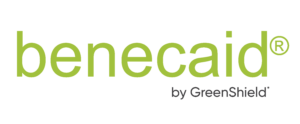The start of a New Year brings with it new beginnings and new possibilities. It’s also a time when many of us make resolutions to ensure the upcoming year is even better than the last one. We’ve put together three resolutions to help you get a head start on a successful 2018.
1. Consider mental health when you are recommending group benefits
It is estimated that 1 in 5 Canadians will experience a mental health condition during his or her lifetime, with anxiety being one of the most common conditions. Mood disorders and substance abuse were most prevalent among youth (age 15 to 24) than any other age group.
As campaigns such as Bell Let’s Talk become more mainstream and help to lessen the stigma associated with mental illness, employees are more willing to recognize the signs and seek treatment; many look to their group benefits plans for resources and coverage that supports mental well-being.
Prepare for 2018 by ensuring you’re recommending a robust Employee and Family Assistance Program (EFAP) as a starter. EFAPs provide employees and their families with confidential support on a variety of issues that affect them, either personal or work-related. Sometimes EFAP is not enough, so consider more robust coverages as well, and don’t be timid to bring the issue up with plan administrators. They may be wondering why you haven’t.
Contact your Benecaid Executive Benefits consultant to find out how your clients can enhance their plans by adding an EFAP such as the one offered by Shepell.
2. Voluntary Benefits
Many employers don’t offer the protection of group life insurance, critical illness and disability insurance. The rising cost of benefits makes it more difficult to afford these supplemental coverages, yet they are so important to a complete benefits offering. Most employees would gladly pay for these products if they had the right offer, made simple and affordable.
Voluntary benefits can help close gaps in coverage and enhance an existing plan; they allow employees to take advantage of group buying power and the benefits of pooling – giving them access to coverage and competitive pricing that otherwise wouldn’t be available.
Offering voluntary benefits is the fastest way to add value to your book of business; they allow you to bring an innovative solution to your groups that won’t cost the plan sponsor any money.
Want to learn more about offering voluntary benefits? Log in to your Access Benecaid Advisor portal to watch our recent webinar. We have several leading options, which can also be combined with our Honeybee offering.
3. Spend more time understanding the new workforce
Trying to attract and retain employees spanning multiple generations can be challenging. There’s a growing disconnect between what many employers are offering regarding benefits and what today’s employees are looking for.
It’s difficult for employers to offer a traditional health insurance plan that will address the needs of their employees that range from millennials to baby boomers. More advisors are recommending that their clients consider defined contribution benefit plans, this is driven primarily by the shift in the age demographics of the current workforce.
Employee directed plans such as our Honeybee digital benefits platform can address these challenges by allowing employees to customize their own coverage to ensure they meet their individual needs.
With Honeybee, employers set a budget and have the ability to select which products they want to make available for employees. Honeybee also lets employers add non-traditional items to their benefits package such as coverage for transportation, pet insurance, gym memberships, tuition reimbursement and much more, allowing them to create unique benefits that reinforce their corporate culture. Honeybee is a total benefits solution for today’s modern workforce.
These are just three ways that you can prepare for 2018 – we would love to hear your own New Year’s resolutions that will help your business thrive. Reach out to us on Facebook, Twitter or LinkedIn.
To find out more about how to implement any of these suggestions, please contact your Benecaid Executive Benefits Consultant or send us an email at advisors@benecaid.com.



Comments are closed.